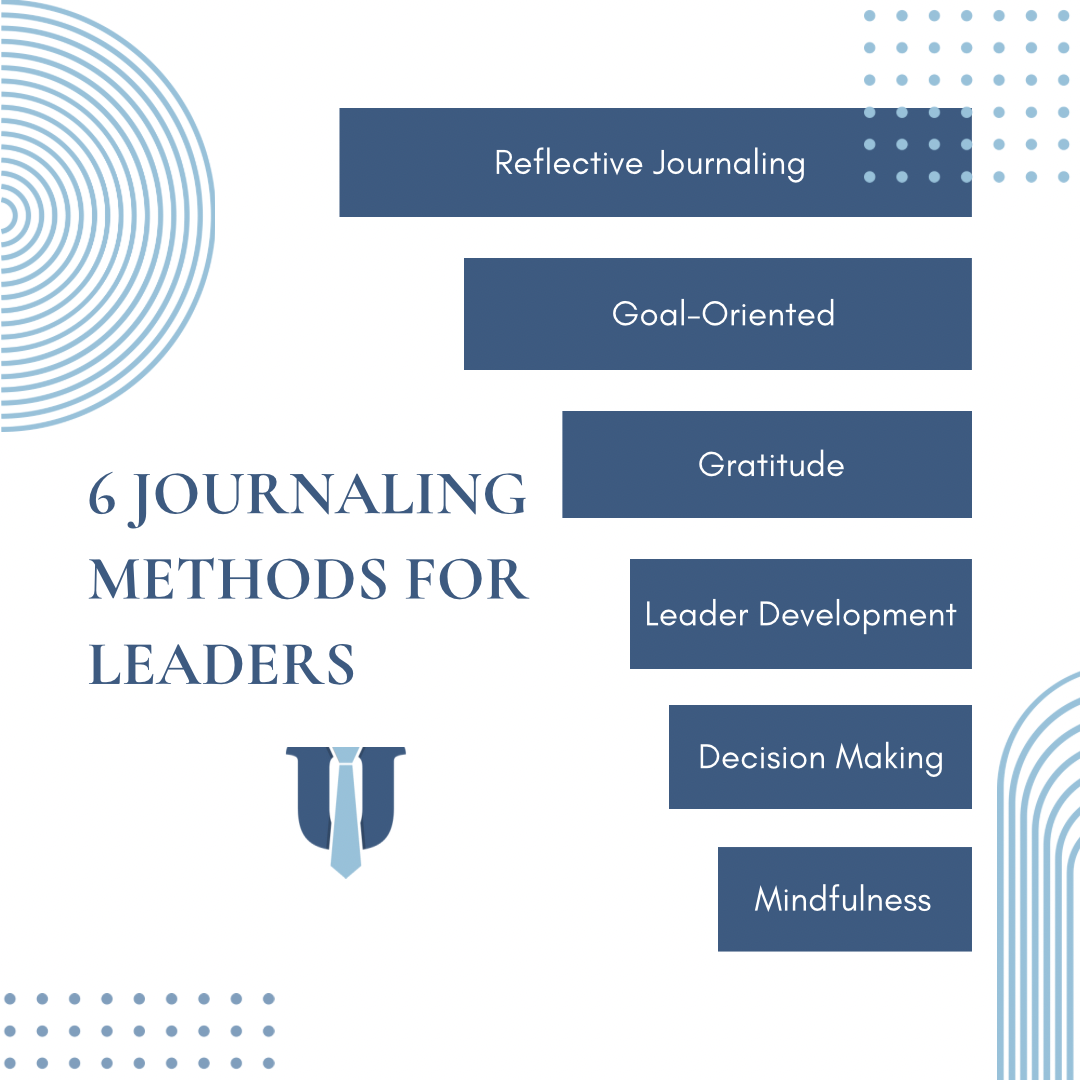If you’ve ever come across my LinkedIn posts or browsed through our website, you’re probably aware that I’m a strong advocate for reflective journaling for leaders. Whether it’s for motivation, reflection, or organization, I believe in the power of putting pen to paper. As leaders, journaling becomes an invaluable tool for personal and professional growth.
Over time, I’ve crafted numerous journals specifically designed for leaders, aiming to help them grasp the significance of introspection and self-awareness. Beyond that, I’ve emphasized the proven advantages of reflective journaling for leaders.
However, the world of journaling encompasses a wide spectrum. A quick Google search on the subject reveals topics ranging from emotional well-being to mental health and even book journals. While all of these can have their relevance for leaders at different points, the question remains: which type offers the most substantial benefit?
In this comprehensive guide, we’ll dive into the various types of journaling that can empower leaders to excel in their roles. Join us on this journey as we explore how reflective journaling can be a transformative practice for leaders and discover which type resonates with you.
Table of Contents

1. Reflective Journaling for Leaders:
Reflective journaling for leaders stands as a fundamental practice. It involves the regular documentation of thoughts, experiences, and insights. As someone who places great emphasis on self-awareness and emotional intelligence, I see reflective journaling as an indispensable tool for personal growth.
In my own life, I use reflective journaling to enrich both my professional and personal spheres. I jot down a few sentences in my bullet journal several times a week, capturing crucial reflections from my day or week. These reflections span from workplace observations to insights gained from books or podcasts or even reflections on conversations with my wife.
Unlit Pro Tip: For those already maintaining a planner or daily journal, consider incorporating a dedicated section for reflection. Establish a consistent schedule for this practice to make it an integral part of your routine.
2. Goal-Oriented Journaling:
Leadership inherently involves setting and achieving goals. Goal-oriented journaling offers a structured approach to defining objectives, tracking progress, and adapting strategies. This type of journaling can effectively align your actions with your vision, thereby enhancing your effectiveness as a leader.
While leaders often excel at creating organizational goals using methods like SMART or PACT, they may tend to prioritize their teams and organizations over their personal aspirations. By intentionally dedicating a journal to your goals, you reinforce their importance and begin holding yourself accountable.
Unlit Pro Tip: Consider utilizing digital tools like Trello to build out yearly, quarterly, and monthly goals while keeping track of individual steps in your bullet journal. Here’s one of my favorite templates.
3. Gratitude Journaling:
Gratitude journaling is a practice that fosters positivity and resilience in leaders. It involves acknowledging and appreciating the aspects of life that evoke gratitude. Leaders can employ gratitude journaling to cultivate a positive mindset, alleviate stress, and strengthen relationships within their organizations.
In my own practice, I’ve seamlessly integrated gratitude journaling into my broader bullet journal. As leaders, entrepreneurs, and coaches, we have a plethora of tools at our disposal without adding another book to the mix. My recommendation is to schedule regular sessions for reflection, infusing elements of gratitude into your practice.
Unlit Pro Tip: Acknowledging wins and positive aspects of life might not come naturally to problem solvers and “fixers.” However, taking the time to celebrate achievements allows us to recognize how far we’ve come while also serving as an effective stress and negativity management tool.
4. Decision Journaling:
While less common than other journaling types, decision journaling stands out as one of the most beneficial for leaders. Leaders frequently encounter complex decisions with profound implications for their organizations and teams. Decision journaling involves meticulously documenting the decision-making process, including factors considered and eventual outcomes.
Most organizations have established decision-making frameworks, such as the military’s MDMP process. However, these frameworks seldom provide room for annotating personal decision reasoning, thoughts, and reflections. By meticulously annotating your decision-making process, you enhance your ability to make well-informed decisions and learn from both successes and failures.
Unlit Pro Tip: Integrate decision journaling alongside your reflection practice to develop a more nuanced understanding of decision outcomes, improving your ability to estimate the results of similar projects in the future.
5. Leadership Development Journaling:
Leadership development journaling centers on personal and professional growth. High-performing leaders continually seek self-improvement, and this type of journaling aids in tracking development, setting learning objectives, and identifying areas for enhancement.
Leadership development journals can focus on specific areas of improvement or provide a holistic view of your development journey. Some of the clients I coach utilize book journals to cultivate a consistent reading habit. In contrast, others incorporate habit trackers into their daily journals to monitor self-development and improvement areas.
Unlit Pro Tip: If you’re aiming to enhance specific skills, consider exploring guided journals tailored to your areas of improvement, such as self-awareness or overcoming imposter syndrome.
6. Mindfulness Journaling:
Mindfulness is a practice that leaders often underestimate. In my previous article, “Be a Better Leader with Mindfulness Techniques,” I highlighted how mindfulness can enhance leadership by improving connections with your audience, refining products, fostering strategic thinking, and enhancing communication.
In the fast-paced world of leadership, mindfulness journaling provides a moment for reflection and presence. Leaders can leverage this practice to manage stress, sharpen focus, and nurture emotional intelligence. So, how can you incorporate mindfulness into your journaling routine?
Leaders can dedicate a journal specifically to recording their thoughts, emotions, and experiences. This type of reflective journaling for leaders parallels reflection journals but places a stronger focus on self-awareness, intensifying your presence in the moment and fostering a deeper understanding of your reactions and behaviors.
Unlit Pro Tip: I prefer to engage in mindfulness journaling after a meditation session or following an invigorating workout. The key is to find a time when you are fully focused and present to schedule your journaling sessions.
Conclusion
In the realm of leadership, journaling is a versatile and potent tool that can unlock tremendous potential. The journey to authentic and impactful leadership begins with self-awareness and purposeful action. Now that you’ve explored various types of journaling, it’s time to decide which one resonates most with you.
So, which type of journaling aligns with your leadership journey? What will you implement in your life to enhance your leadership effectiveness? If you’re seeking guided journals or coaching to kickstart or refine your journaling practice, we invite you to explore our services at Unlit Leadership. Your transformation as a leader commences with self-awareness and intentional action. Let’s embark on this transformative journey together.



